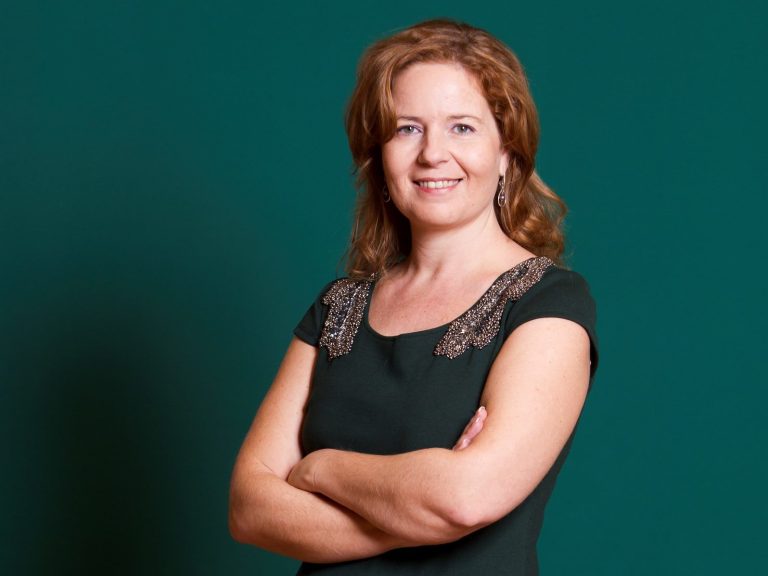Mercedes Gómez Varela is Head of Partnerships & Alliances Iberia – Online at Worldline where she is in charge of generating relationships with partners. Her professional experience has given her expertise in digital business and marketing, especially in the eCommerce sector and payment platforms . She has worked in relevant companies in the sector such as Konami Digital Entertainment, Panda Security or Sage Pay .
It seems that the geopolitical situation will have an impact on the economy, do you fear that this will affect eCommerce?
It is clear that we live in a geopolitical situation that – while unfortunate in human terms – will have consequences in rising costs of raw materials, transport and packaging. Online sales are not immune to this reality, since they largely depend on many of these actors in the value chain for their activity. And those costs must be passed on. Unlike the Pandemic, which caused exponential growth in eCommerce due to restrictions,
“My opinion on this occasion is that there may be a downward effect in certain niches, either due to the increase in the cost of goods or services, or due to a psychological factor added to the economic uncertainty that consumers have been experiencing for two years now” .
Nor can we forget that the Russian market is a large global consumer, and some payment schemes such as Visa, Mastercard or Amex have decided to suspend their operations in Russia, when only the first two accounted for 74% of payments in 2020.
Whoever strongly depends on this market is already being affected.
Has eCommerce not stopped growing in recent years, are we reaching the limit of online customers in Spain or is there still room for growth?
I firmly believe that there is room for growth, thanks to two factors: the acceleration in the conversion of consumers traditionally adverse to online shopping , which has been pushed by social factors derived from the Pandemic, and the progressive incorporation of new generations to the ability to purchase and purchasing power.
In addition, the South of Europe (Spain, Portugal, Italy and Greece), we are the great focus of the industry at the moment, since we have arrived later than other northern countries (UK, Benelux, Germany) to the emergence of eCommerce. where the markets are already more mature and the growth capacity less.
What phase of the online purchase process do you consider the most important? And the one that has a lot to improve?
Any moment in the purchase phase, from attraction to checkout, is a true moment of truth , but I do have to choose two important ones: the moment of payment and delivery , which are precisely the least “sexy” of the entire chain. eCommerce value.
“Many merchants don’t pay enough attention to them, and they are the sticking points where a great shopping experience can be ruined and even close the doors to loyalty and repeat purchases.”
As an expert in online payments, I see room for improvement in choosing the most relevant means of payment for each business and country (there is enormous geographic diversity in the payment mix), the use of tokenization to facilitate recurring purchases, the maximum integration of the payment page in the purchase flow to avoid abandonment, and the improvement of conversion or recovery of abandoned carts thanks to tools such as payment links.
What eCommerce trend do you think will have the greatest impact in the coming years?
Well, there will not be a single one, I could suggest several, in my opinion:
- Concentration of eCommerce ecosystems : Managing an eCommerce forces the integration and knowledge of various technologies throughout the value chain, which distracts and slows down the start-up and the generation of revenue. We have already seen many alliances between players such as platforms, logistics or payments. This will continue to happen organically until large blocks of closed ecosystems are reached where an etailer has all its needs integrated, from demand generation to fulfillment.
- Revolution in means of payment : Payment is the moment of truth for every business, and in the online world it is especially important. Speed, security and convenience are keys to conversion. Convenience means offering those means of payment that your customers want to use, and cryptocurrencies are already a reality that will be absolutely consolidated as a means of payment in the coming years.
- Metaverses: We will move from the current “phygital” world to the transfer of all necessary marketing and sales strategies to these new emerging scenarios , since consumers eager to satisfy their needs will also be there.
Do you consider that the logistics sector is prepared to respond to the demand of eCommerce?
At this point, and speaking as a user, I have to say that there are great differences between operators. Without mentioning anyone, some have “put the batteries” more than others.
If I speak from my perspective as an eCommerce professional, I think that those who have done their homework well now have the great challenge of adding value to their service to the consumer. We come from a few years where logistics has been perceived as a free intangible, promoted by the large marketplaces.
“A re-education should begin, perhaps based on expanding more effective tracking services, delivery options or online payment, where everyone – merchants and customers – can have an impact and understand the true value and complexity of logistics.”
Do you recommend the use of technological solutions such as Deliverea, where logistics operations are centralized in an automated tool, for the proper development of an online business?
Definitely yes. That is exactly what I was referring to in the previous question. The role of technology is key when it comes to automating, optimizing costs and informing the customer. The future success of the sector lies in the union of the expertise of logistics operators with the infinite solutions of technologies such as yours.


